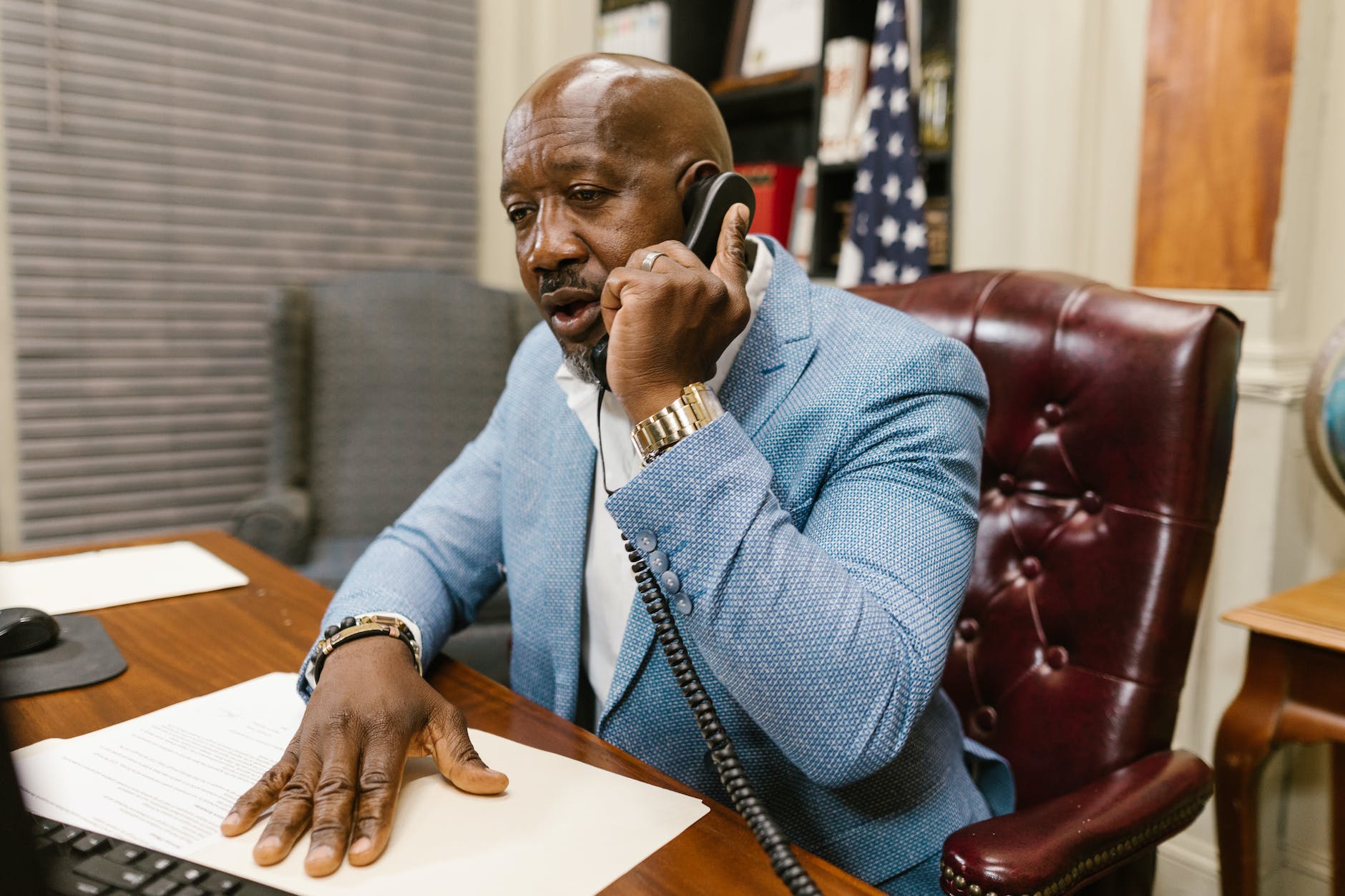
Photo by RODNAE Productions on <a href="https://www.pexels.com/photo/a-man-using-telephone-7841853/" rel="nofollow">Pexels.com</a>
A person may need a lawyer for various reasons, such as handling a legal dispute, drafting a will or contract, representing them in court, providing legal advice and guidance, or even handling a real estate transaction. Many of us will need to hire a lawyer at some point in our lives, so it is advisable to carefully research and compare different lawyers, their qualifications, experience, and track record before making a decision.
Step 1: Determine the type of lawyer you need
The first step in finding the right lawyer for your construction accident case is to determine the type of lawyer you need. For construction accidents, it is recommended to find a personal injury lawyer who specializes in construction accidents, such as John Foy construction accident lawyer. This type of lawyer will have a deep understanding of the laws and regulations that govern construction sites and will be able to provide you with the best legal representation.
Credit: Karolina Grabowska/ Pexels
Step 2: Ask for referrals
One of the best ways to find a good lawyer is to ask for referrals from people you trust. For example, you might ask friends, family, and coworkers if they know of a personal injury lawyer who has experience handling particular injury or accident cases, such as Dubo Law. You can also ask for referrals from other lawyers, such as a family lawyer or a criminal lawyer, who may know a specific kind of lawyer with experience in handling cases similar to yours.
Step 3: Check Legal Directories
There are many online legal directories that can help you find lawyers in your area. These directories typically list lawyers by practice area and location, so you can easily find a lawyer who specializes in the type of law that you need help with. Some popular legal directories include Avvo, FindLaw, and Justia.
Credit: Pavel Dunilyuk/ Pexels
Step 4: Research Lawyers Online
Once you have a list of potential lawyers, it is important to research them online. This will give you an idea of their experience, reputation, and track record. In addition, look for reviews from past clients and read about their backgrounds, education, and professional accomplishments. You can also visit their website better to understand their approach to the practice of law.
Step 5: Schedule a Consultation
Once you have narrowed down your list of potential lawyers, it is important to schedule a consultation with each one. This will give you an opportunity to meet with the lawyer in person and ask any questions you may have. During the consultation, pay attention to how the lawyer listens to you and if they are responsive to your needs. You should also ask about their fees, experience, and how they handle cases like yours.
Step 6: Consider the Fee Structure
Lawyers typically charge by the hour, but some may offer a flat fee for certain services. It is important to understand how the lawyer you are considering charges for their services, as well as how they bill for expenses like court costs and expert witness fees. Be sure to discuss the fee structure with the lawyer during the consultation and ask for an estimate of the total cost of your case.
In conclusion, finding the right lawyer can be challenging, but it is important to take your time and research. You can find the right lawyer by considering your legal needs, asking for recommendations, researching lawyers online, scheduling consultations, and trusting your instincts. A good lawyer can make a big difference in the outcome of your case and give you peace of mind during a stressful time.


